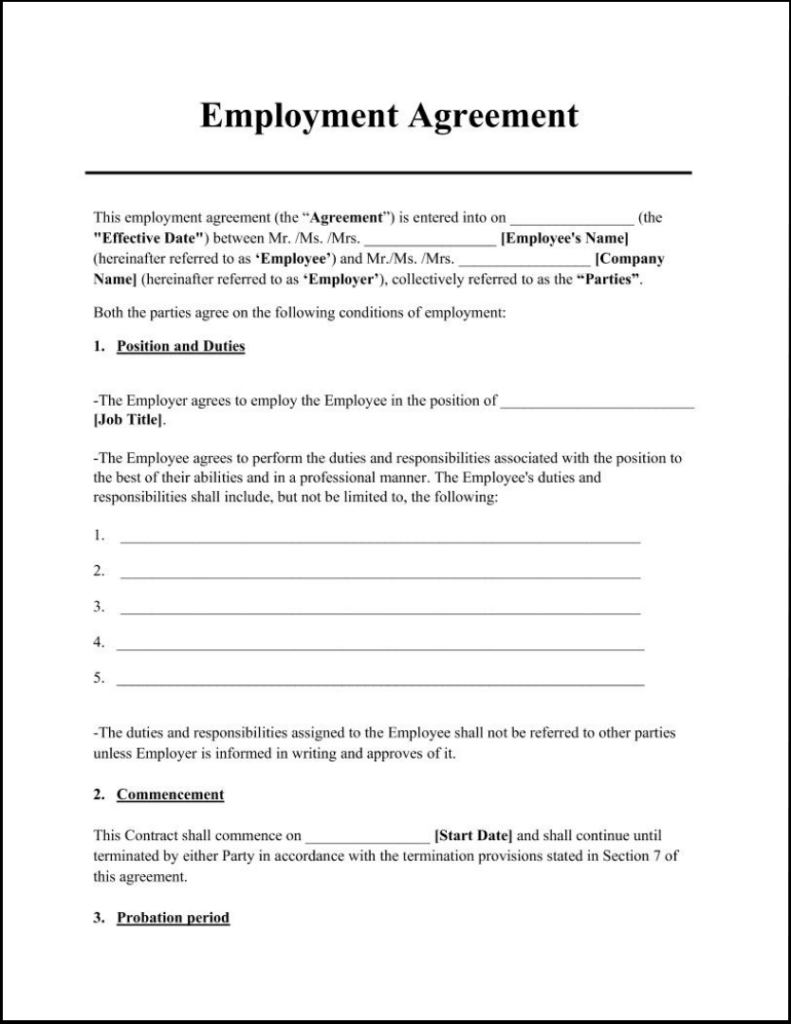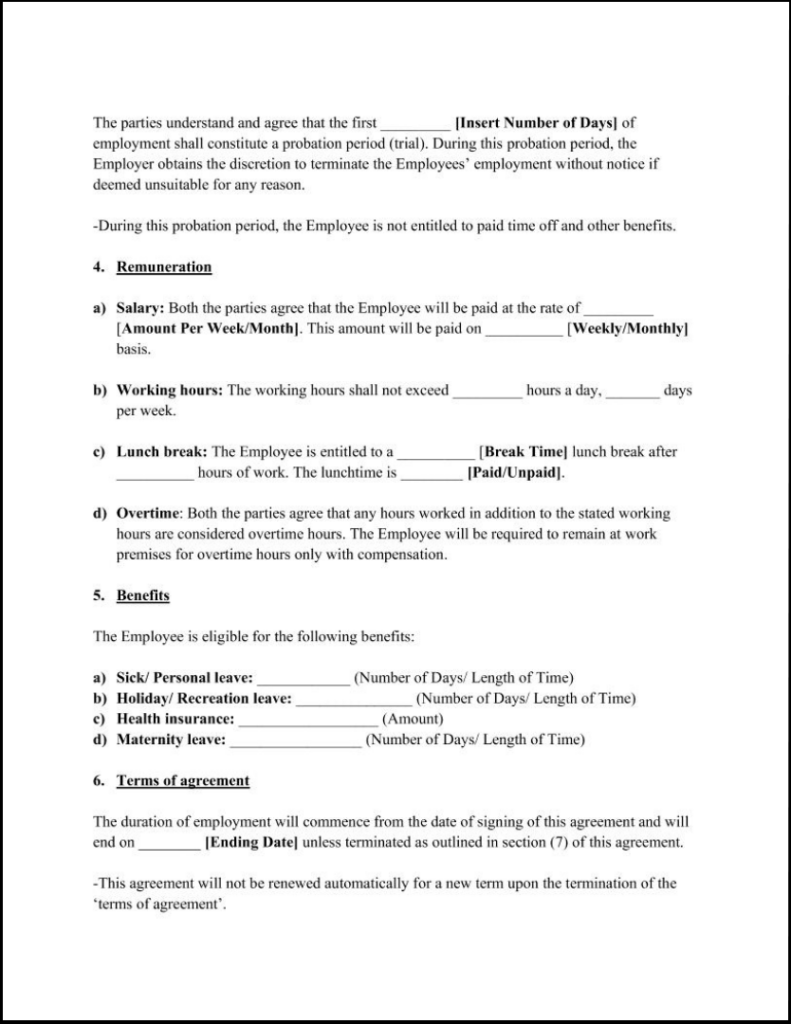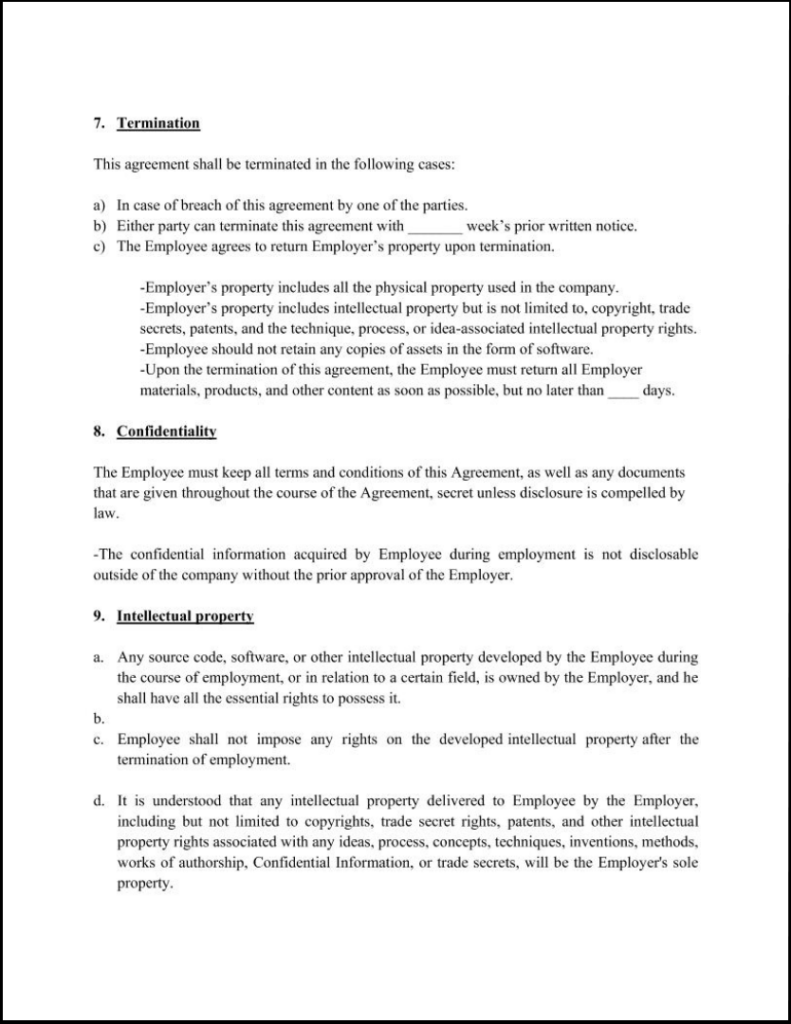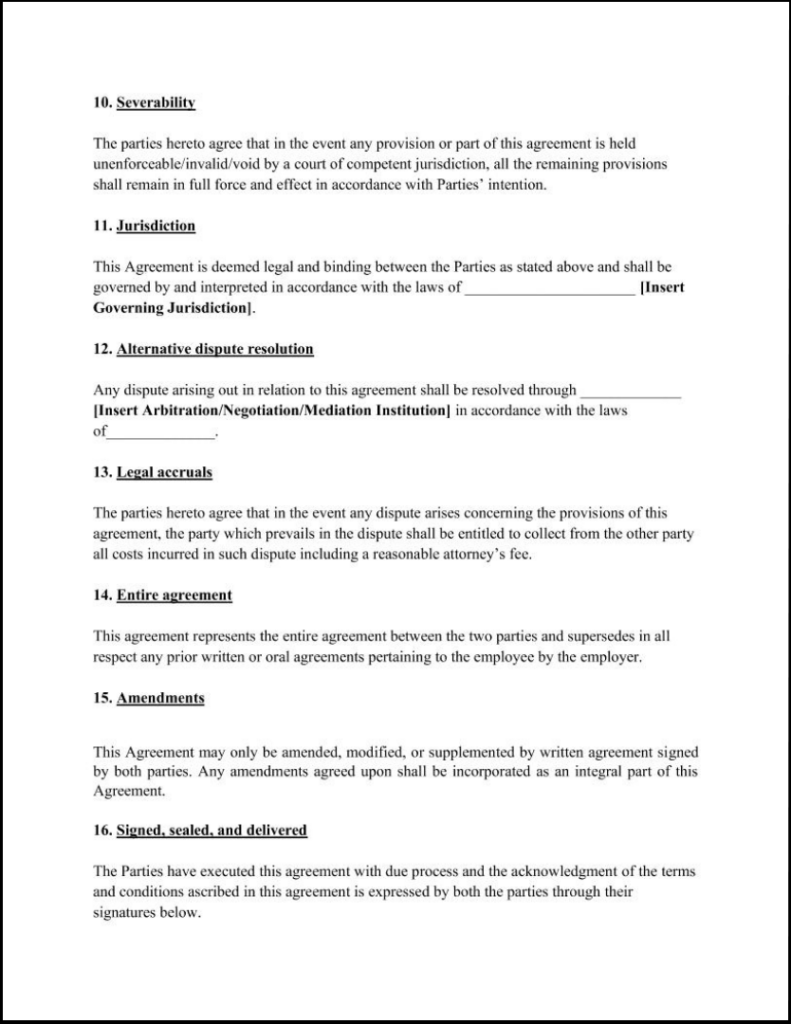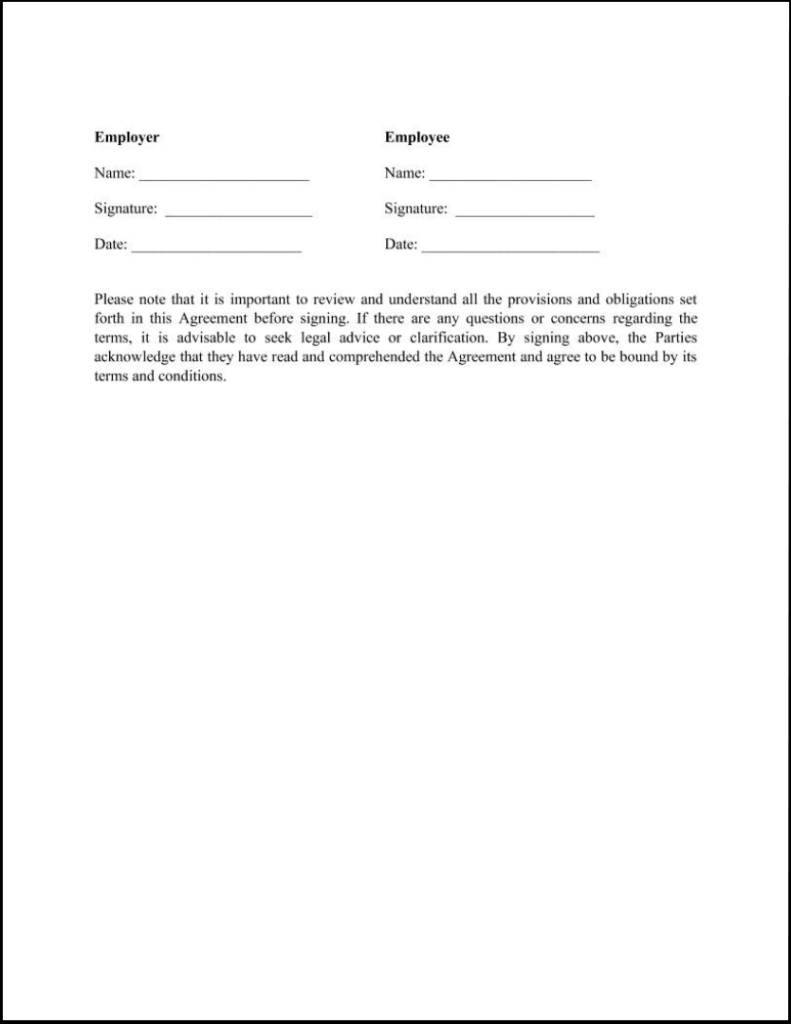Employment Contract Template
Employment contracts serve as essential tools for establishing a clear working environment. These legally binding agreements outline the rights, responsibilities, and expectations of both parties, ensuring a harmonious working relationship. Utilizing employment contracts not only benefits employers by safeguarding their interests but also empowers employees by ensuring transparency and fairness in the workplace.
Unlock a streamlined and professional employment process with our Employment Contract Template. Download now for a hassle-free experience.
What is an Employment Contract?
An employment contract is a formal agreement between an employer and an employee that governs their professional relationship. It sets out essential aspects such as job responsibilities, compensation, benefits, working hours, termination conditions, and other pertinent details. By clarifying these terms, employment contracts provide a framework for a mutually beneficial partnership and help prevent misunderstandings or disputes in the future.
Employment contracts serve as comprehensive agreements that encompass a multitude of key elements essential to the establishment of clear terms and conditions of employment. These contracts address a diverse array of crucial aspects, spanning beyond limitation to include:
- Job Title and Description
- Compensation and Benefits
- Work Schedule
- Employment Type
- Probationary Period
- Confidentiality and Non-Disclosure
- Intellectual Property Rights
- Termination and Notice Period
- Non-Compete and Non-Solicitation
- Dispute Resolution
- Governing Law
- Amendments and Modifications
- Entire Agreement Clause
Free Editable Employment Contract Sample
Access our free employment contract sample to safeguard your interests. Download now and take proactive steps toward a secure employment contract at no cost.
The Significance of an Employment Agreement in Formalizing Working Relationships
An employment agreement serves as a vital document that outlines the terms, obligations, and rights of both parties involved. Here are some key reasons why an employment agreement is essential in professional engagements:
Clarity and Expectations
Employment contracts provide a clear and explicit outline of the rights, responsibilities, and expectations of both the employer and the employee. This ensures that all parties involved are aware of their obligations and can work towards achieving shared goals.
Legal Protection
By formalizing the employment relationship through a written contract, employers and employees gain legal protection. The contract serves as a reference point in case of disputes or conflicts, helping to resolve issues based on the agreed-upon terms and applicable employment laws.
Terms and Conditions
Employment contracts define crucial aspects such as job title, responsibilities, working hours, compensation, benefits, leave entitlements, and termination procedures. These details ensure transparency and provide a framework for addressing any potential concerns or disagreements that may arise during the course of employment.
Intellectual Property Rights
Contracts often address intellectual property ownership, protecting the employer’s rights to any intellectual property created by the employee during their tenure. This safeguards the employer’s proprietary information and prevents unauthorized use or disclosure.
Non-Compete and Non-Disclosure
Employment contracts may include clauses that restrict employees from competing with the employer or disclosing confidential company information, both during and after their employment. These provisions help protect the employer’s business interests and proprietary knowledge.
Dispute Resolution
Contracts can outline the procedures for resolving disputes, specifying whether arbitration, mediation, or other methods will be employed. Establishing a clear dispute resolution mechanism in the contract promotes fairness and efficiency in handling conflicts.
Compliance with Laws
Employment contracts ensure compliance with applicable employment laws and regulations. By including relevant clauses, employers can address specific legal requirements, such as non-discrimination, health and safety, and statutory benefits, providing a basis for fair and lawful employment practices.
Mutual Agreement
Employment contracts are mutual agreements between the employer and the employee. This means that both parties have an opportunity to negotiate and reach a consensus on the terms and conditions, fostering a sense of fairness and mutual understanding.
Key Guidelines for Formulating Effective Employment Contracts
When it comes to creating employment contracts, following best practices ensures that both employers and employees are protected and that the terms of employment are clear and fair. Consider implementing these best practices when crafting your employment contracts:
- Seek Legal Advice
- Use Clear and Concise Language
- Include Essential Elements
- Tailor the Contract to the Specific Role
- Address Confidentiality and Non-Disclosure
- Review and Update Regularly
- Document Any Amendments in Writing
- Educate and Communicate with Employees
- Keep Records of Signed Contracts
- Periodic Training on Employment Contracts
By adhering to these best practices, you can create robust and effective employment contracts that protect the rights and interests of both employers and employees, fostering a productive and harmonious work environment.
FAQs Related to Employment Contract Templates
Disclaimer: Please note that the samples provided here are intended to serve as a helpful resource and should not be considered legal advice. It is important to consult with a qualified attorney or legal professional to ensure that any modifications or usage of these templates align with the specific laws and regulations applicable to your jurisdiction and circumstances. BunnyDoc disclaims any liability or responsibility for the consequences arising from the use or customization of these templates. It is the responsibility of the users to review and adapt these templates to their specific needs, and to seek legal counsel for their particular circumstances.
